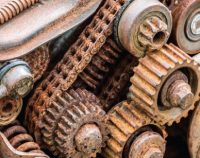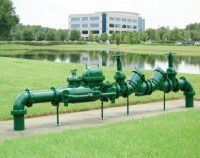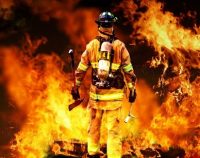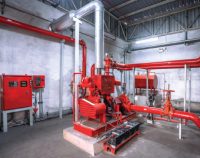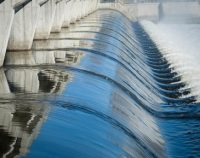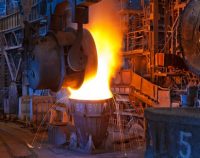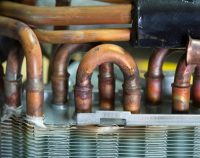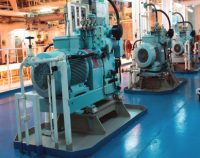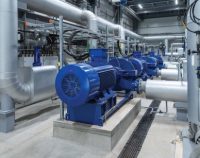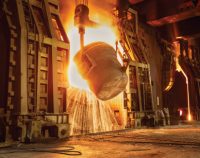Showing 21–40 of 58 results
Energy Efficient Cool Roofs: 1 PDH
$6.00 Add to cartIn this online course a student will understand energy efficient cool roofs, what they are and when to use, material selection for cool roofs, and applications for new construction and restoring exisiting structures.Instructor: Seth Grablow, PESPECIFIC KNOWLEDGE OR SKILL OBTAINED
This course teaches the following specific knowledge and skills:
- Understand the workings of cool roofs
- Identify the different types of cool roof materials
- Discuss cool roof selection and climate zones
- Explain cool roofs new construction & modifying existing buildings
CERTIFICATE OF COMPLETION
You will be able to immediately print a certificate of completion after passing a ten (10) question multiple-choice quiz. The quiz can be retaken unlimited times until a passing grade of 70% or better is earned. This course satisfies one (1) continuing education hour (CEH)/professional development hour (PDH) of continuing education.
Preview CourseClick” Preview Course” to View Prior to PurchaseClick “Add to Cart” to Purchase and Access QuizEngineer’s Guide to Corrosion-Causes, Protection and Control: 8 PDH
$40.00 Add to cartIn this course the student will understand the process of corrosion on metals from its causes and effects into protection and control. The student will understand corrosion on a variety of metals and methods to mitigate and control corrosion over the life of a material. Instructor: Seth Grablow, PESPECIFIC KNOWLEDGE OR SKILL OBTAINED
This course teaches the following specific knowledge and skills:
- Discuss environmental factors that affect corrosion
- Understand the eight major forms of corrosion
- Discuss corrosion characteristics and properties of various common metals
- Explain corrosion protection and methods of control
- Discuss monitoring of corrosion and available inspection technologies
- Understand the electrochemistry, kinetics, and thermodynamics of the corrosion process
CERTIFICATE OF COMPLETION
You will be able to immediately print a certificate of completion after passing a 30 question multiple-choice quiz. The quiz can be retaken unlimited times until a passing grade of 70% or better is earned. This course satisfies eight professional development hours (PDH) of continuing education.
Preview CourseClick “Preview Course” to View Prior to PurchaseClick “Add to Cart” to Purchase and Access QuizEngineer’s Guide to Cross Connection Control: 4 PDH
$24.00 Add to cartIn this online course a student will understand cross connection risks, review real case studies of cross connection mishaps, and understand the various methods and procedures to mitigate cross connection hazards.Instructor: Seth Grablow, PESPECIFIC KNOWLEDGE OR SKILL OBTAINED
This course teaches the following specific knowledge and skills:
- Understand the health hazards of cross-connections
- Discuss various real-life mishaps
- Discuss cross-connections risk mitigation
- Explain programs for cross-connection control and backflow prevention
- Understand common cross-connection scenarios and methods to mitigate
CERTIFICATE OF COMPLETION
You will be able to immediately print a certificate of completion after passing a twenty (20) question multiple-choice quiz. The quiz can be retaken unlimited times until a passing grade of 70% or better is earned. This course satisfies four (4) continuing education hour (CEH)/professional development hour (PDH) of continuing education.
Preview CourseClick” Preview Course” to View Prior to PurchaseClick “Add to Cart” to Purchase and Access QuizEngineering Human Performance Optimization in the Workplace Part 1: 4 PDH
$24.00 Add to cartPart 1 of a two part series, In this course the student will understand the strategic approach for improving performance to reduce human error and manage controls so as to reduce unwanted events and/or mitigate their impact should they occur. The student will learn methods and techniques for catching and reducing errors and locating and eliminating latent organizational weaknesses.Instructor: Raymond Bosek, PESPECIFIC KNOWLEDGE OR SKILL OBTAINED
This course teaches the following specific knowledge and skills:
- Explain human performance and its principles
- Discuss the anatomy of a human triggered event
- Understand strategic approach for human performance
- Describe human fallibility and common traits of human nature
- Discuss performance modes of human performance
- Recognize error-likely situations
CERTIFICATE OF COMPLETION
You will be able to immediately print a certificate of completion after passing a twenty (20) question multiple-choice quiz. The quiz can be retaken unlimited times until a passing grade of 70% or better is earned. This course satisfies four (4) professional development hours (PDH) of continuing education.
Preview CourseClick “Preview Course” to View Prior to PurchaseClick “Add to Cart” to Purchase and Access QuizEssentials of Heating and Cooling of Buildings: 7 PDH
$40.00 Add to cartIn this course the student will understand all elements effecting heating and cooling of structures and to properly calculate loads and loss for ideal thermal comfort.Instructor: Seth, Grablow PESPECIFIC KNOWLEDGE OR SKILL OBTAINED
This course teaches the following specific knowledge and skills:
- Discuss the human body, human heat transfer, and thermal comfort
- Understand design conditions for heating and cooling
- Understand heat gain, heat loss, and heat transfer of people and equipment
- Explain solar heat gain and transfer
- Discuss infiltration heat load and weatherizing
- Understand calculating heating and cooling requirements
- Understand annual energy consumption of a building
CERTIFICATE OF COMPLETION
You will be able to immediately print a certificate of completion after passing a 25 question multiple-choice quiz. The quiz can be retaken unlimited times until a passing grade of 70% or better is earned. This course satisfies seven professional development hours (PDH) of continuing education.
Preview CourseClick “Preview Course” to View Prior to PurchaseClick “Add to Cart” to Purchase and Access QuizFire Protection System Design: 3 PDH
$18.00 Add to cartThis three (3) hour course overviews standards to design and build an environment for building occupants that is reasonably safe from fire and products of combustion as well as how to provide a reasonable level of building usability and property protection from the effects of fire and products of combustion.Instructor: Seth Grablow, PEThis three (3) hour course overviews standards to design and build an environment for building occupants that is reasonably safe from fire and products of combustion as well as how to provide a reasonable level of building usability and property protection from the effects of fire and products of combustion.
SPECIFIC KNOWLEDGE OR SKILL OBTAINED
This course teaches the following specific knowledge and skills:
- Become familiar and identify fire protection engineering design criteria
- Discuss the various building fire protection devices and installation standards
- Examine adequacy for water supply and the various methods and standards to implement sprinkler systems
- Understand fire extinguishing systems – the how, what, and where to install
- Identify fire alarm system design guidlines and installation standards
CERTIFICATE OF COMPLETION
You will be able to immediately print a certificate of completion after passing a 15 question multiple-choice quiz. The quiz can be retaken unlimited times until a passing grade of 70% or better is earned. This course satisfies three (3) continuing education hour (CEH)/professional development hour (PDH) of continuing education.
Preview CourseClick” Preview Course” to View Prior to PurchaseClick “Add to Cart” to Purchase and Access QuizFire Protection Systems: 3 PDH
$18.00 Add to cartIn this course the student will understand fire protection systems and fire protection system operations and will be able to familiarize themselves with the various systems and components including operations and maintenance/ inspection procedures.Instructor: Seth Grablow, PESPECIFIC KNOWLEDGE OR SKILL OBTAINED
This course teaches the following specific knowledge and skills:
- Explain the various types of sprinkler systems
- Explain the various types of sprinklers
- Discuss the types of automatic sprinklers
- Discuss sprinkler system detection and indicating devices
- Describe sprinkler system inspection and testing procedures
- Explain types of gaseous extinguishing systems
- Discuss dry chemical extinguishing systems
- Explain the procedures associated with boiler water treatment and cleaning
- Describe the procedures for cleaning boiler firesides and watersides
- Describe the procedures associated with boiler maintenance
CERTIFICATE OF COMPLETION
You will be able to immediately print a certificate of completion after passing a 15-question multiple-choice quiz. The quiz can be retaken unlimited times until a passing grade of 70% or better is earned. This course satisfies three (3) hours of professional development (PDH).
Preview CourseClick “Preview Course” to view prior to purchaseClick “Add to Cart” to purchaseFluid Flow: 4 PDH
$24.00 Add to cartFluid flow and practical fluid mechanics is essential to any engineer's knowledge base. This course will overview the basic principles of fluid flow including the three key attributes to solve all fluid problems. Bernoulli Equation will be discussed in detail to enable understanding of different types of energy in a fluid stream. Laminar and turbulent flow, head loss, and factors affecting head loss will also be dicussed in detail and explained with practical problems.Instructor: Seth Grablow, PEFluid flow and practical fluid mechanics is essential to any engineer's knowledge base. This course will overview the basic principles of fluid flow including the three key attributes to solve all fluid problems. Bernoulli Equation will be discussed in detail to enable understanding of different types of energy in a fluid stream. Laminar and turbulent flow, head loss, and factors affecting head loss will also be dicussed in detail and explained with practical problems.
SPECIFIC KNOWLEDGE OR SKILL OBTAINED
This course teaches the following specific knowledge and skills:
- Review of key principles
- Shear Stress in a fluid
- Conservation of Mass
- Conservation of Momentum
- Reynolds number
- Laminar versus turbulent flow
- Bernoulli Equation
- Major head losses
- Minor head losses
- System level analysis
CERTIFICATE OF COMPLETION
You will be able to immediately print a certificate of completion after passing a 15 question multiple-choice quiz. The quiz can be retaken unlimited times until a passing grade of 70% or better is earned. This course satisfies 4 professional development hours (PDH) of continuing education.
Preview CourseClick “Preview Course” to View Prior to PurchaseClick “Add to Cart” to Purchase and Access QuizFundamentals of Biodiesel: 4 PDH
$24.00 Add to cartIn this online course a student will understand biodiesel and biodiesel blends and practical guidelines for using in place of standard diesel, this includes characteristics, storage and safety issues, and procedures for using in compression-ignition engines and boilers. Instructor: Seth Grablow, PESPECIFIC KNOWLEDGE OR SKILL OBTAINED
This course teaches the following specific knowledge and skills:
- Understand biodiesel and biodiesel blends
- Explain biodiesel benefits and attributes
- Discuss biodiesel blends and characteristics
- Explain safety, health, & environmental issues with biodiesel
- Understand storage and material compatibility
CERTIFICATE OF COMPLETION
You will be able to immediately print a certificate of completion after passing a twenty (20) question multiple-choice quiz. The quiz can be retaken unlimited times until a passing grade of 70% or better is earned. This course satisfies four (4) continuing education hours (CEH)/professional development hours (PDH) of continuing education.
Preview CourseClick” Preview Course” to View Prior to PurchaseClick “Add to Cart” to Purchase and Access QuizFundamentals of Gas Turbine Engines: 5 PDH
$30.00 Add to cartThis course provides an overview of the development of gas turbines, operational theory, Brayton cycle, conditions and design limitations that affect performance, types of turbine engines and components utilized in a gas turbine engine.Instructor: Seth Grablow, PEConcepts for machines that harness power from heated air or water have been around since the 1600s. From this beginning, the gas turbine engine now is at the center of major industries including: aviation, naval propulsion, and power generation. This course provides an overview of the development of gas turbines, operational theory, Brayton cycle, conditions and design limitations that affect performance, types of turbine engines and components utilized in a gas turbine engine.
SPECIFIC KNOWLEDGE OR SKILL OBTAINED
This course teaches the following specific knowledge and skills:
- History of development of the gas turbine
- Basic gas turbine engine operation theory, Brayton Cycle
- Factor affecting engine performance
- Types of gas turbine engines
- Components of a gas turbine engine
- Gas turbine engine auxiliary systems
CERTIFICATE OF COMPLETION
You will be able to immediately print a certificate of completion after passing a 25 question multiple-choice quiz. The quiz can be retaken unlimited times until a passing grade of 70% or better is earned. This course satisfies 5 professional development hours (PDH) of continuing education.
Preview CourseClick “Preview Course” to View Prior to PurchaseClick “Add to Cart” to Purchase and Access QuizFundamentals of Metals: 5 PDH
$30.00 Add to cartThe course provides an understanding of the structure and properties of metals, stress mechanisms, failure modes and the characteristics determine their usefulness for a specific application. Often, materials are subject to variable forces (loads). The engineer calculates these forces to establish the service that can be expected and material scientists experiment to determine how materials deform (elongate, compress, and twist) or break as a function of applied load, time, temperature, and other conditions.Instructor: Seth Grablow, PEThe course provides an understanding of the structure and properties of metals, stress mechanisms, failure modes and the characteristics determine their usefulness for a specific application. Often, materials are subject to variable forces (loads). The engineer calculates these forces to establish the service that can be expected and material scientists experiment to determine how materials deform (elongate, compress, and twist) or break as a function of applied load, time, temperature, and other conditions.
SPECIFIC KNOWLEDGE OR SKILL OBTAINED
This course teaches the following specific knowledge and skills:
- Mechanical properties of metals
- Structure of metals and how those structures are affected by various processes
CERTIFICATE OF COMPLETION
You will be able to immediately print a certificate of completion after passing a 20 question multiple-choice quiz. The quiz can be retaken unlimited times until a passing grade of 70% or better is earned. This course satisfies 5 professional development hours (PDH) of continuing education.
Preview CourseClick “Preview Course” to View Prior to PurchaseClick “Add to Cart” to Purchase and Access QuizFundamentals of Pumps: 4 PDH
$24.00 Add to cartThis online course provides an overview of centrifugal and positive displacement pumps, pump components, protection, and operational considerations. Pumps serve in a wide range of applications, from industrial uses such as pumping oil or natural gas, to consumer uses in vehicles or decorative fountains. Knowledge of the different designs of pumps can be used when selecting them for use in a system.Instructor: Seth Grablow, PEThis online course provides an overview of centrifugal and positive displacement pumps, pump components, protection, and operational considerations. Pumps serve in a wide range of applications, from industrial uses such as pumping oil or natural gas, to consumer uses in vehicles or decorative fountains. Knowledge of the different designs of pumps can be used when selecting them for use in a system.SPECIFIC KNOWLEDGE OR SKILL OBTAINED
This course teaches the following specific knowledge and skills:
- Centrifugal Pump Design and Classification
- Pump Operation and Protection
- Cavitation Prevention
- Positive Displacement Pump Design and Classification
CERTIFICATE OF COMPLETION
You will be able to immediately print a certificate of completion after passing a 15 question multiple-choice quiz. The quiz can be retaken unlimited times until a passing grade of 70% or better is earned. This course satisfies 4 professional development hours (PDH) of continuing education.
Preview CourseClick “Preview Course” to View Prior to PurchaseClick “Add to Cart” to Purchase and Access QuizFundamentals of Valves: 4 PDH
$24.00 Add to cartValves are a ubiquitous feature in many industrail facilities. As Valves make up the most common single piece of equipment found in industrial facilities familiarity with valves is useful practical knowledge. This course will provide an overview of the common components of valves, types of valves usage, design considerations, and actuation methods.Instructor: Seth Grablow, PEValves are a ubiquitous feature in many industrail facilities. As Valves make up the most common single piece of equipment found in industrial facilities familiarity with valves is useful practical knowledge. This course will provide an overview of the common components of valves, types of valves usage, design considerations, and actuation methods.
SPECIFIC KNOWLEDGE OR SKILL OBTAINED
This course teaches the following specific knowledge and skills:
- Valve Functions
- Basic Parts of Valves
- Different Types of Values (Usage and Design)
- General Design Considerations when using valves
- Types of Valve Actuators
CERTIFICATE OF COMPLETION
You will be able to immediately print a certificate of completion after passing a 25 question multiple-choice quiz. The quiz can be retaken unlimited times until a passing grade of 70% or better is earned. This course satisfies 4 professional development hours (PDH) of continuing education.
Preview CourseClick “Preview Course” to View Prior to PurchaseClick “Add to Cart” to Purchase and Access QuizHeat Exchangers Fundamentals: 4 PDH
$24.00 Add to cartHeat Exchangers are a vital part to many industrial and consumer systems. They can be found anywhere from power plants and breweries to cars and HVAC systems. Heat Exchangers are vital for transferring heat from or between fluids. Knowledge of the fundamentals behind the use and design is vital to anyone involved with mechanical systems. This course reviews the practical applications of thermodynamics, heat transfer, and fluid flow principles covered in other PDH courses.Instructor: Seth Grablow, PEHeat Exchangers are a vital part to many industrial and consumer systems. They can be found anywhere from power plants and breweries to cars and HVAC systems. Heat Exchangers are vital for transferring heat from or between fluids. Knowledge of the fundamentals behind the use and design is vital to anyone involved with mechanical systems. This course reviews the practical applications of thermodynamics, heat transfer, and fluid flow principles covered in other PDH courses.
SPECIFIC KNOWLEDGE OR SKILL OBTAINED
This course teaches the following specific knowledge and skills:
- Methods of Constructing Heat Exchangers
- Types of Heat Exchangers
- Review Rate of Heat Transfer equations
- Applications of Heat Exchangers
CERTIFICATE OF COMPLETION
You will be able to immediately print a certificate of completion after passing a 15 question multiple-choice quiz. The quiz can be retaken unlimited times until a passing grade of 70% or better is earned. This course satisfies 4 professional development hours (PDH) of continuing education.
Preview CourseClick “Preview Course” to View Prior to PurchaseClick “Add to Cart” to Purchase and Access QuizHeat Transfer: 4 PDH
$24.00 Add to cartThe transfer of heat is an integral part of many industrial processes. Moreover, heat transfer affects our everyday lives – from an oven heating our dinner to the wind cooling us on a hot summer day. Thus, it is important that the engineer understands how to apply the basic principles of heat transfer to solve real-world problems.Instructor: Seth Grablow, PEThe transfer of heat is an integral part of many industrial processes. Moreover, heat transfer affects our everyday lives – from an oven heating our dinner to the wind cooling us on a hot summer day. Thus, it is important that the engineer understands how to apply the basic principles of heat transfer to solve real-world problems.
SPECIFIC KNOWLEDGE OR SKILL OBTAINED
This course teaches the following specific knowledge and skills:
- Heat transfer definitions and terminology, including heat flux, thermal conductivity, LMTD, and heat transfer coefficients
- Conduction and the equivalent resistance formulas
- Convection and use of the overall heat transfer coefficient
- Radiant heat transfer, including black bodies, gray bodies and emissivity
CERTIFICATE OF COMPLETION
You will be able to immediately print a certificate of completion after passing a 15 question multiple-choice quiz. The quiz can be retaken unlimited times until a passing grade of 70% or better is earned. This course satisfies 4 professional development hours (PDH) of continuing education.
Preview CourseClick “Preview Course” to View Prior to PurchaseClick “Add to Cart” to Purchase and Access QuizImproving Compressed Air System Performance: 4 PDH
$24.00 Add to cartThis course provides a thorough overview of compressed air systems and their components and presents various methods and opportunities to enhance performance and increase efficiency. Instructor: Seth Grablow, PESPECIFIC KNOWLEDGE OR SKILL OBTAINED
This course teaches the following specific knowledge and skills:
- Understand compressed air systems and their components
- Discuss various industrial uses for compressed air
- Explain tools and methods to analyze systems
- Discuss performance enhancements at the system level
- Discuss performance enhancements at the component level
- Understand the economics of the system and systems management approaches
CERTIFICATE OF COMPLETION
You will be able to immediately print a certificate of completion after passing a twenty (20) question multiple-choice quiz. The quiz can be retaken unlimited times until a passing grade of 70% or better is earned. This course satisfies four (4) professional development hours (PDH) of continuing education.
Preview CourseClick “Preview Course” to View Prior to PurchaseClick “Add to Cart” to Purchase and Access QuizImproving Energy Efficiency in Historic Buildings: 2 PDH
$12.00 Add to cartIn this course the student will learn the general concept of the most efficient methods to enhance energy efficiency of historic buildings, while limiting the damage done during the rehabilitation process.Instructor: Raymond Bosek, PEIn this course the student will learn the general concept of the most efficient methods to enhance energy efficiency of historic buildings, while limiting the damage done during the rehabilitation process.SPECIFIC KNOWLEDGE OR SKILL OBTAINED
This course teaches the following specific knowledge and skills:
- Inherent energy efficient features of historic buildings
- Concept of conducting an energy audit
- Actions to improve energy efficiency
- Dealing with moisture
- Applicable alternative energy sources
CERTIFICATE OF COMPLETION
You will be able to immediately print a certificate of completion after passing a 10 question multiple-choice quiz. The quiz can be retaken unlimited times until a passing grade of 70% or better is earned. This course satisfies two (2) professional development hours (PDH) of continuing education.
Preview CourseClick “Preview Course” to View Prior to PurchaseClick “Add to Cart” to Purchase and Access QuizImproving Fan System Performance: 4 PDH
$24.00 Add to cartIn this online course a student will understand fan systems, their components and operation, and various methods and guidelines to improve the performance for new or existing systems.Instructor: Seth Grablow, PESPECIFIC KNOWLEDGE OR SKILL OBTAINED
This course teaches the following specific knowledge and skills:
- Understand the basics industrial fan systems and components
- Identify fan selection and efficiency
- Discuss basic maintenance and common problems
- Explain configurations to improve fan efficiency
- Understand fan control and arrangements
- Explain fan economics and calculations used
CERTIFICATE OF COMPLETION
You will be able to immediately print a certificate of completion after passing a twenty (20) question multiple-choice quiz. The quiz can be retaken unlimited times until a passing grade of 70% or better is earned. This course satisfies four (4) continuing education hours (CEH)/professional development hours (PDH) of continuing education.
Preview CourseClick” Preview Course” to View Prior to PurchaseClick “Add to Cart” to Purchase and Access QuizImproving Motor and Drive System Performance: 5 PDH
$30.00 Add to cartThis course provides a thorough overview of motor and drive systems and their components and presents various methods and opportunities to enhance performance and increase efficiency.Instructor: Seth Grablow, PESPECIFIC KNOWLEDGE OR SKILL OBTAINED
This course teaches the following specific knowledge and skills:
- Understand motor and drive systems and their components
- Discuss various industrial uses for motor and drive systems
- Explain tools and methods to analyze systems
- Discuss performance enhancements at the system level
- Discuss performance enhancements at the component level
- Understand the economics of the system and systems management approaches
CERTIFICATE OF COMPLETION
You will be able to immediately print a certificate of completion after passing a 20 question multiple-choice quiz. The quiz can be retaken unlimited times until a passing grade of 70% or better is earned. This course satisfies five (5) hours of professional development (PDH).
Preview CourseClick “Preview Course” to view prior to purchaseClick “Add to Cart” to purchaseImproving Process Heating System Performance: 4 PDH
$24.00 Add to cartThis course provides a thorough overview of process heating systems and their components and practical guidelines to enhance performance and increase efficiency. Instructor: Seth Grablow, PESPECIFIC KNOWLEDGE OR SKILL OBTAINED
This course teaches the following specific knowledge and skills:
- Understand process heating systems and applications
- Discuss process heating system components and principles
- Explain process heating assessments and common system problems
- Discuss performance enhancements at the system level
- Discuss performance enhancements at the component level
- Understand the economics of improving process heating
CERTIFICATE OF COMPLETION
You will be able to immediately print a certificate of completion after passing a twenty (20) question multiple-choice quiz. The quiz can be retaken unlimited times until a passing grade of 70% or better is earned. This course satisfies four (4) professional development hours (PDH) of continuing education.
Preview CourseClick “Preview Course” to View Prior to PurchaseClick “Add to Cart” to Purchase and Access Quiz


